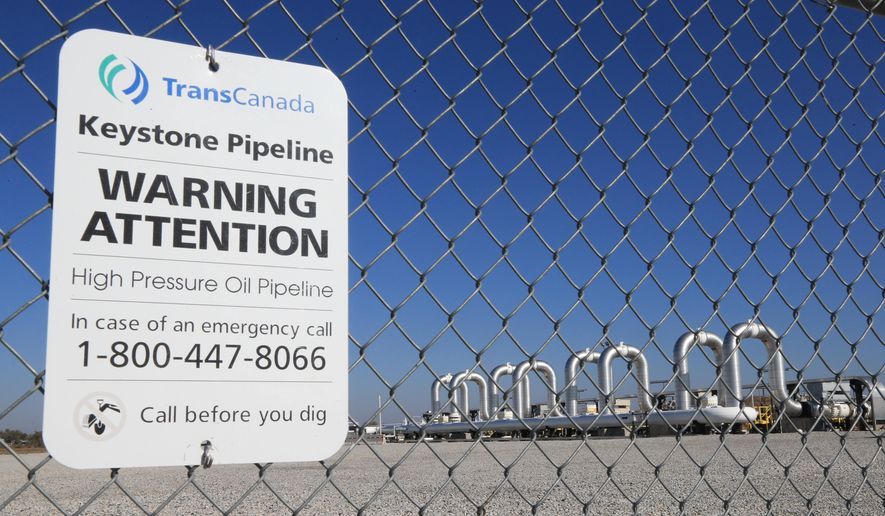The protests and encampments seen in the months-long effort to stop the Dakota Access pipeline will be employed in a new bitter battle to halt Keystone XL, environmentalists and tribal leaders said Friday morning, just hours after President Trump formally green-lighted the pipeline.
Keystone opponents held a conference call Friday to outline their new strategy to stop the project now that Mr. Trump, fulfilling a campaign promise, reversed his predecessor’s decision and approved the Canada-to-Texas pipeline. That strategy will focus on legal challenges in Nebraska, where state regulators still haven’t approved a pipeline route through the state. A decision in Nebraska isn’t expected until the fall.
But beyond those legal efforts, critics say the guerrilla warfare tactics used to hold up the Dakota Access project will be seen again.
“Our dedication to stop this pipeline isn’t just for the future determination of our lives as human beings but also for the future of all generations of life, and that we stay true to the understandings of protecting mother earth to the fullest degree and do it in a prayerful way,” Tom Goldtooth, executive director of the Indigenous Environmental Network, told reporters.
“We fully expect to stand united and to continue resistance and carry forth the fire of mobilization … in the fight we saw against the Dakota Access pipeline to this next project here,” he continued.
Mr. Trump’s approval of Keystone caps off a nearly decade-long fight at the federal level. The Obama administration delayed a decision on the project for nearly eight years before finally rejecting the pipeline in late 2015, citing concerns over climate change.
SEE ALSO: Keystone XL oil pipeline approved by the State Department
The Trump administration’s approval on Friday reverses that decision but it does not mean the pipeline can immediately break ground. The Nebraska Public Service Commission has only started a lengthy process to review Keystone’s proposed route through the state.
Years of legal and regulatory hurdles have greatly complicated efforts to finalize the pipeline’s path through the state. This latest round of review proceedings will include public hearings over the summer, with the expectation of a decision sometime in September, possibly later.
More than 100 stakeholders in Nebraska have filed motions to intervene in the legal proceeding.
Mr. Trump on Friday jokingly said he’d call Nebraska Gov. Pete Ricketts, a Republican, to expedite that process.
But as a legal and practical matter, such a phone call would make little difference as the decision is out of the governor’s hands.
“He doesn’t even have the courage and doesn’t even have the knowledge of the permitting process,” Jane Kleeb, president of the environmental group Bold Alliance, said of the president. “He is so arrogant to think a phone call to Gov. Ricketts … would somehow grant and green-light this project in our state. News flash to President Trump: Gov. Ricketts actually has no role in the approval process of the Keystone XL pipeline in Nebraska.”
• Ben Wolfgang can be reached at bwolfgang@washingtontimes.com.




Please read our comment policy before commenting.